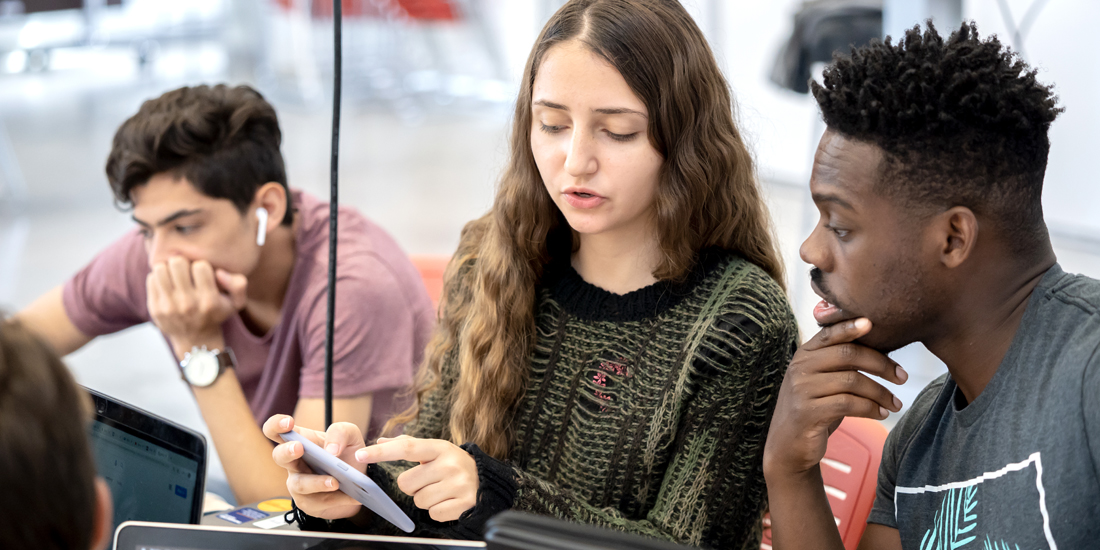
NAE Grand Challenges Scholars Program
The National Academy of Engineering (NAE) Grand Challenges Scholars Program (GCSP) is a multi-year, research-based program designed to prepare students to be 21st-century problem solvers.

At Berkeley Engineering, the GCSP includes unique experiences that combine coursework, research, extracurricular activities, internships, study abroad, and volunteer opportunities. Berkeley Engineering GCSP leverages our engineering curriculum and programs, institutes and centers, as well as diverse experiences supported throughout and beyond our campus. These combined elements ensure that scholars achieve a rich portfolio centered upon a Grand Challenge that builds five core competencies.
Podcast: The executive director and faculty adviser share the details and their enthusiasm for GCSP.
NAE Grand Challenges
The NAE has identified 14 grand challenges broadly defined across four themes: sustainability, health, security and joy of living. These societal challenges require solutions that require not only fundamental engineering principles but also cultural, political, social, ethical and economic awareness.
GCSP five competencies
GCSP scholars will build portfolios of achievements with the guidance of faculty advisers and the program executive director in these NAE-recognized competencies:
- Talent competency: mentored research or project related to a Grand Challenge
- Multicultural competency: cultural awareness obtained through global experience
- Multidisciplinary competency: knowledge in technical and non-technical areas
- Viable business/entrepreneurship competency: implementation of technical innovation
- Social consciousness competency: service for the benefit of society
Students must prove competency in these five areas and have a cumulative GPA of 3.0 in order to receive their distinction as a Grand Challenges Scholar upon graduation.
Program benefits
Program eligibility and application requirements
First-year students (after their first semester), sophomores and juniors in the College of Engineering are eligible to apply. The application consists of:
- An unofficial transcript
- A completed application including a statement explaining interest in the Grand Challenges and motivation for joining the program
- Recommendation letter (optional)
- Plan for completion of the program
Characteristics of applicants
- The primary desired characteristics of GCSP applicants are a passion for addressing the Grand Challenges for Engineering and an interest in using knowledge for the greater good of society.
- With its strong commitment to diversity, GCSP encourages applications from a broad spectrum of engineering students. Because completing the program requirements is a multiyear process, it is recommended that students apply to the program during their freshman (second semester) or sophomore years. The program will accept qualified candidates from any year as long as they can propose an achievable plan for completion of the program requirements.
- It is particularly important that applicants from the junior and senior classes discuss their plans with the executive director to ensure that they can successfully complete the program prior to their expected graduation date.
